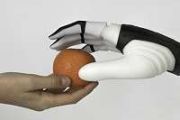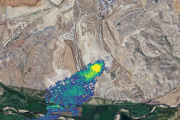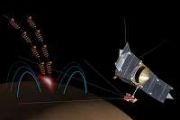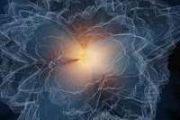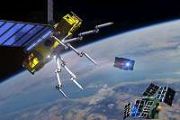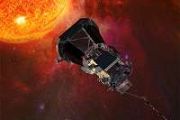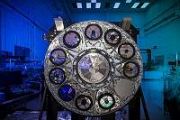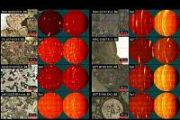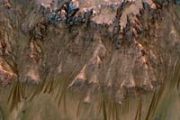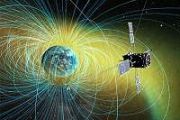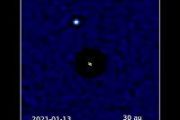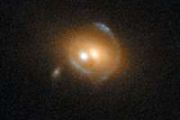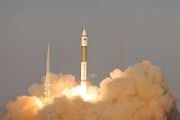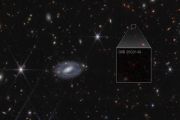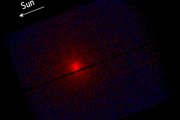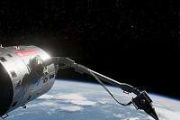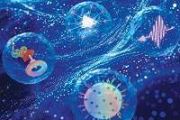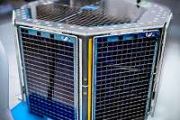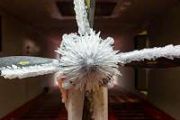
Copernical Team
Two meteorites are providing a detailed look into outer space
 If you've ever seen a shooting star, you might have actually seen a meteor on its way to Earth. Those that land here are called meteorites and can be used to peek back in time, into the far corners of outer space or at the earliest building blocks of life. Today, scientists report some of the most detailed analyses yet of the organic material of two meteorites. They've identified tens of thousan
If you've ever seen a shooting star, you might have actually seen a meteor on its way to Earth. Those that land here are called meteorites and can be used to peek back in time, into the far corners of outer space or at the earliest building blocks of life. Today, scientists report some of the most detailed analyses yet of the organic material of two meteorites. They've identified tens of thousan Firefly Aerospace completes risk reduction testing for critical Miranda engine
 Firefly Aerospace, Inc., an end-to-end space transportation company, recently completed risk reduction testing for critical Miranda engine components ahead of the first hot fire scheduled this summer. As a larger, scaled-up version of the company's Reaver engines, Miranda will power the Medium Launch Vehicle (MLV) Firefly is co-developing with Northrop Grumman.
"We are making significant p
Firefly Aerospace, Inc., an end-to-end space transportation company, recently completed risk reduction testing for critical Miranda engine components ahead of the first hot fire scheduled this summer. As a larger, scaled-up version of the company's Reaver engines, Miranda will power the Medium Launch Vehicle (MLV) Firefly is co-developing with Northrop Grumman.
"We are making significant p Certified and Ready for Rocket-Powered Flight
 Insability is a key property that enables both swift iteration in development and unparalleled utility of the end product.
Aside from being a key technology demonstrator, the Mk-II holds significant commercial promise as a suborbital vehicle, spanning a wide range of applications such as earth monitoring, microgravity research, disaster management, and in-situ atmospheric measurements - pr
Insability is a key property that enables both swift iteration in development and unparalleled utility of the end product.
Aside from being a key technology demonstrator, the Mk-II holds significant commercial promise as a suborbital vehicle, spanning a wide range of applications such as earth monitoring, microgravity research, disaster management, and in-situ atmospheric measurements - pr Scientists find water inside glass beads on the Moon
 Scientists said Monday they have discovered water inside tiny beads of glass scattered across the Moon, suggesting that one day it could be extracted and used by the "explorers of tomorrow".
The Moon was long believed to be dry, but over the last few decades several missions have shown there is water both on the surface and trapped inside minerals.
Mahesh Anand, a professor of planetary
Scientists said Monday they have discovered water inside tiny beads of glass scattered across the Moon, suggesting that one day it could be extracted and used by the "explorers of tomorrow".
The Moon was long believed to be dry, but over the last few decades several missions have shown there is water both on the surface and trapped inside minerals.
Mahesh Anand, a professor of planetary Webb measures temperature of rocky exoplanet for first time
 The James Webb Space Telescope has measured the temperature of a rocky exoplanet for the first time, finding that a "cousin" of Earth most likely lacks an atmosphere, researchers said Monday.
When the Trappist-1 system was discovered in 2017, astronomers were excited at the prospect that some of its seven rocky planets - which are roughly similar to Earth in size and mass - could be habita
The James Webb Space Telescope has measured the temperature of a rocky exoplanet for the first time, finding that a "cousin" of Earth most likely lacks an atmosphere, researchers said Monday.
When the Trappist-1 system was discovered in 2017, astronomers were excited at the prospect that some of its seven rocky planets - which are roughly similar to Earth in size and mass - could be habita Vatican to send Pope's message of hope into orbit

A message of faith and hope first delivered by Pope Francis in the middle of the 2020 coronavirus lockdown will be sent into space, the Vatican announced Monday.
The speech of the pontiff praying alone in an empty St Peter's Square have been turned into a "nanobook" measuring less than two millimeters wide, which will be launched into orbit on June 10.
It will travel around the Earth on a purpose-built satellite at an altitude of about 525 kilometers, dispatched on a SpaceX Falcon 9 rocket from Vandenberg Space Force Base in California.
The "Spei Satelles" (Satellites of Hope in Latin) project—whose cost and funding has not been revealed—is being coordinated by the Italian Space Agency in conjunction with various Italian institutions.
Agency president Giorgio Saccoccia said the Vatican had asked for "a solution that would allow the Holy Father's words of hope to cross the earth's borders and reach from space the greatest possible number of women and men on our troubled planet".
On March 27, 2020, the pope urged followers who felt "afraid and lost" in the face of what was then a terrifying new virus to have faith.
Webb space telescope measures the temperature of a rocky exoplanet
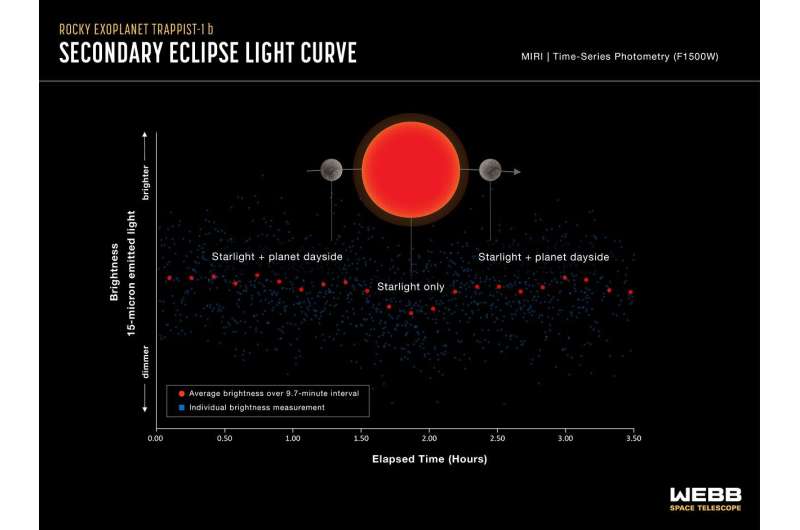
An international team of researchers has used the NASA/ESA/CSA James Webb Space Telescope to measure the temperature of the rocky exoplanet TRAPPIST-1 b. The measurement is based on the planet's thermal emission: heat energy given off in the form of infrared light detected by Webb's Mid-Infrared Instrument (MIRI).
The result indicates that the planet's dayside has a temperature of about 500 Kelvin (roughly 230°C), and suggests that it has no significant atmosphere. This is the first detection of any form of light emitted by an exoplanet as small and as cool as the rocky planets in our own solar system.
Researchers find new water reservoir on moon
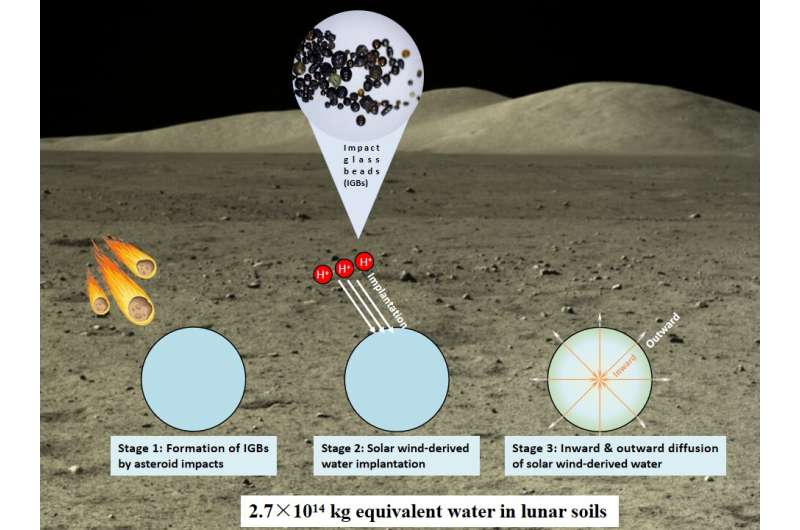
Lunar surface water has attracted much attention due to its potential for in-situ resource utilization by future lunar exploration missions and other space missions
Now, a research group led by Prof. Hu Sen from the Institute of Geology and Geophysics (IGG) of the Chinese Academy of Sciences (CAS) has found that impact glass beads in Chang'e-5 (CE5) lunar soils contain some water.
Detailed studies show that these glass beads are likely a new water reservoir on the moon, recording the dynamic ingress and egress of solar wind-derived water and acting as a buffer for the lunar surface water cycle.
This work was published in Nature Geoscience on March 27.
Many lunar missions have confirmed the presence of structural water or water ice on the moon. There is little doubt that most of the moon's surface harbors water, though the amount is much less than on Earth.
Study reveals map of moon's water near its south pole
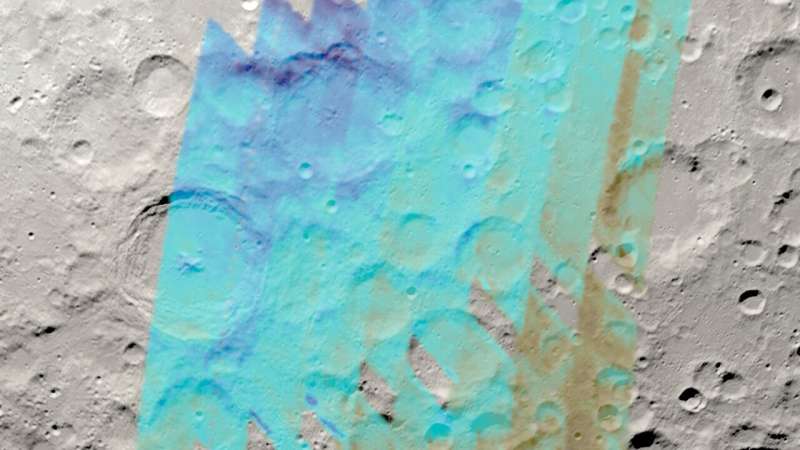
Council approves senior management changes

At its 315th session on 22 and 23 March 2023, the ESA Council approved a series of nominations and extensions of contracts for ESA directors:

